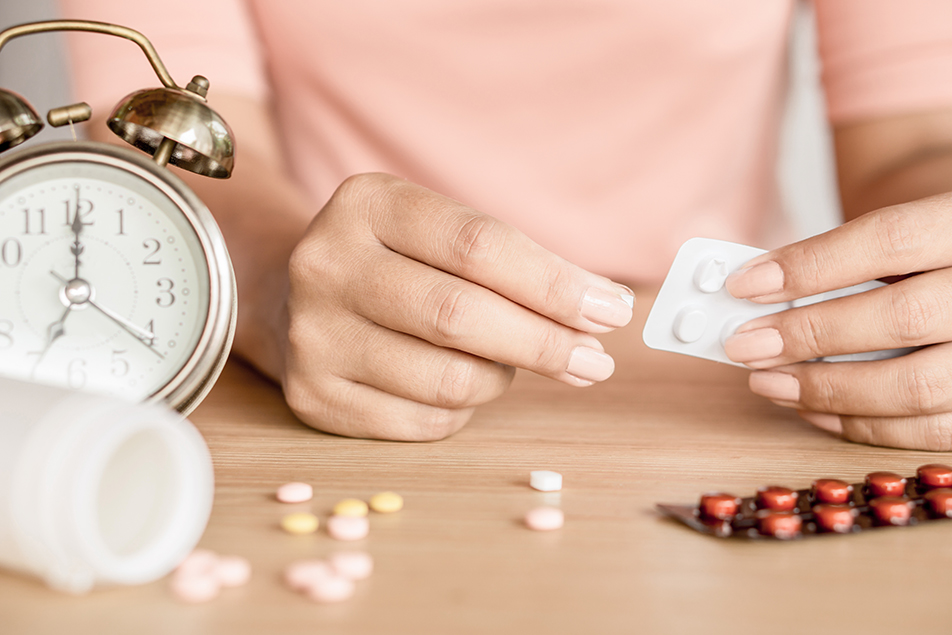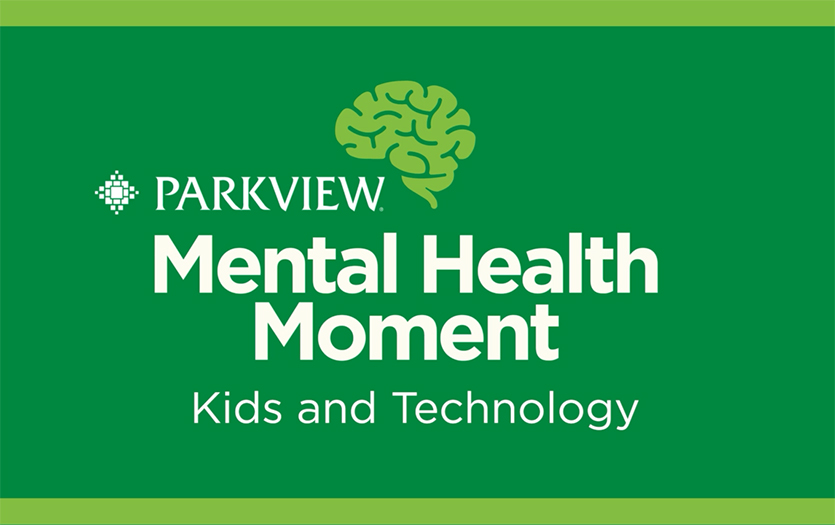
This post was written by Cecilia Schowe, PharmD Candidate, reviewed by Sarah Meeks, PharmD, BCCCP, Parkview Health.
When you pick up a medication from the pharmacy, the bottle usually says something along the lines of “take one tablet by mouth daily,” but this doesn’t really give an explanation as to what “daily” means. Morning? Evening? With food? With my other medications? The answers to these questions really depend on what type of medication you are taking. Some medications have specific instructions or work better in our bodies when taken at a certain time, while other medications are less specific and will work whenever we take them.
There are two main things to consider pertaining to medication timing: 1) When is the best time for you personally, meaning when will you remember to take your medications, 2) If the medication you are taking has specific instructions to follow for the highest efficacy.
Medications requiring specific instructions
While this is not a complete list, here are some of the classes of medications that most commonly require specific timing.
Cholesterol medications
- Examples: atorvastatin (Lipitor®), rosuvastatin (Crestor®), simvastatin (Zocor®), pravastatin (Pravachol®), lovastatin (Altoprev®)
- When to take: These medications work best when taken at night. Our bodies produce the largest amount of cholesterol at night and by taking the medication in the evening we can have the greatest impact on reducing our cholesterol levels.
Diuretics
- Examples: hydrochlorothiazide (Microzide®), chlorthalidone (Thalitone®), furosemide (Lasix®), torsemide (Demadex®), bumetanide (Bumex®), spironolactone (Aldactone®)
- When to take: These medications are best taken in the morning. They work in the kidneys by increasing the amount of water and salt that our bodies get rid of, meaning they can cause increased urination. If these are taken too late in the evening, you might have to get up in the middle of the night to use the restroom multiple times.
Thyroid medications
- Example: levothyroxine (Synthroid®)
- When to take: This medication should be taken in the morning, 30 to 60 minutes before any food or beverage. Or it can be taken at night 3 to 4 hours after dinner. It should be taken as consistently as possible. It should also be taken 4 hours apart from medications containing calcium or iron. How well this medication works and is absorbed in our stomach can be altered significantly by other medications or food in our stomach, which is why there are specific recommendations for this medication to separate from food and other medications.
Calcium supplements
- Examples: Over-the-counter products containing calcium
- When to take: These medications are best when taken with food because calcium needs high stomach acid to help with absorption of the medication. While they should be taken with food, avoid foods high in fiber, like whole grains, beans and potatoes, which can decrease the absorption. Also, if you are taking more than 600 mg of calcium daily, this should be split into more than one dose so that you take a maximum of 600 mg with each meal. A higher dose decreases the absorption of the calcium.
Antacids and Heartburn medications
- Examples: famotidine (Pepcid®), pantoprazole (Protonix®), omeprazole (Prilosec®), esomeprazole (Nexium®), lansoprazole (Prevacid®), dexlansoprazole (Dexilant®)
- When to take: These medications are best taken 30 to 60 minutes before meals. These work by stopping the production of acid in our stomachs, so if taken before a meal they can have the most effect at stopping the excess acid from forming after a meal.
What if my medication doesn’t have specific instructions of when to take it?
Before deciding when you want to take your medications, it’s always best to confirm with your doctor or pharmacist that there are no specific instructions or time of day that you need to take your medication. After that has been determined, it comes down to consistency. You want to pick a time that you will remember. Some tips for this are:
- Find a time when you have an existing routine, and adding in a medication would be an easy additional step. For instance, if you always get a glass of water before bed, place your medications by the cups so you can remember to take them at bedtime. Another helpful place can be near your toothbrush.
- Get a pill box to organize your medications. This sounds like a simple task and one you might hear often from your doctor or pharmacist, but it’s very easy and helpful. Having them organized can also help you remember if you took them on a certain day or not simply by looking in your pill box. This is useful when traveling as well.
- Set a reminder on your phone or an alarm clock. This can serve as a physical reminder that when the alarm goes off you know it’s time to take your medication for the day. This can be especially helpful for once-weekly or once-monthly medications.
If you have any confusion over your medication, particularly if you are introducing a new prescription to your routine, always ask your pharmacist or doctor. They will be happy to help you get the highest efficacy and avoid any potential missteps.
Sources
Multiple entries. Lexi-Drugs. Lexi-Comp Online, Lexi-Comp. Inc. Hudson, OH. Accessed October 24, 2022.
Multiple Entries. Detailed Document. Truven Health Analytics, Inc. Greenwood Village, CO. Accessed October 24, 2022.



